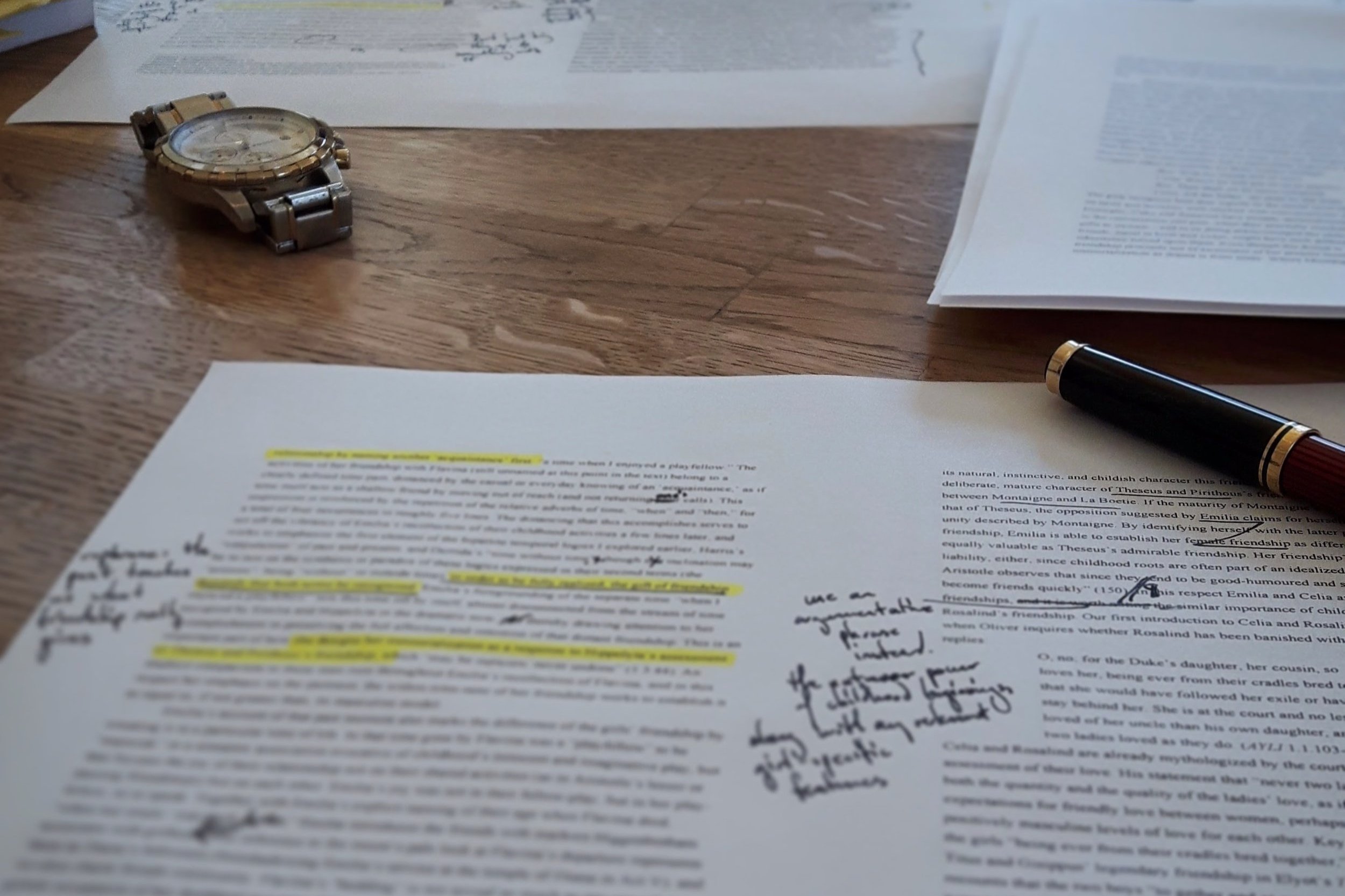My goal is to help you identify your most exciting ideas and craft the most compelling expression of them for your readers.
My editorial expertise centres on non-fiction, including personal essays and reviews, academic writing in the humanities and social sciences, grant-writing, and more. I bring project management and administration experience to every collaboration, and have worked from proposal to publication on projects of all sizes from essays to magazine/journal issues and full-length books. View my portfolio here.
Contact me to inquire about my availability, or read on for a breakdown of editorial services and rates.

Editorial Services
I find it helpful to break the editing process down into 4 distinct stages: developmental/structural editing, stylistic/line editing, copy editing, and proofreading. This is a common approach across the industry—my practice is guided by Editors Canada’s definitions of core skills, professional standards, and rates. I charge a flat rate of $70/hr (CAD). If you have a specific budget or research funding guidelines that apply to your project, please get in touch via the contact form below to discuss how my editorial support could fit within those lines.
While all 4 stages of editing need to happen over the lifespan of each successful project large or small, they are distinct enough that an editor can be brought in for just one stage, and each stage of editing can be more or less time-consuming or in-depth. Before working together, in addition to setting shared expectations about deadlines, communication, and so on, we’ll establish the level and scope of the editing work your project requires.
-
This is the most comprehensive level of editing, which considers the piece as a whole to ensure a coherent, compelling message communicated through clear key concepts and effective argument structure. This stage may drastically reshape your writing, suggesting reorganization and the removal/addition of sections, and offering specific recommendations to improve overall depth and quality.
Developmental editing may involve marginal comments and/or an editorial letter addressing the work as a whole.
-
This round of editing goes through your text with a careful ear to develop stylistic elements like voice, flow, and word choice, refine paragraph structure, and catch any repetition or inconsistency.
Stylistic editing assumes that problems of concepts, argument structure, and overall frame have been handled in previous rounds of editing. The fundamental unit for editing at this stage is the paragraph.
-
This round of editing focuses on the mechanics of writing: polishing or correcting grammar, spelling, punctuation, and usage; editing tables, figures, and lists; applying a publisher’s preferred citation style and formatting, and more.
Though copy editing may still address some stylistic elements, it is primarily technical. The fundamental unit for editing at this stage is the sentence.
-
This is the final read, done to catch typos, lingering grammatical mistakes, and basic formatting issues.
Proofreading is usually done by a second editor once the content is finalized, and often after the text has been typeset by the publisher.
Not sure how to start?
1) Tell me about your project!
What genre are you writing in? How long is it? What are you trying to say, and to whom? What deadline(s) are you working with?
2) I’d love to be involved!
What kind of editorial support are you looking for? Do you have a specific budget to work with? What stage is the project at?
Image from Unsplash.
